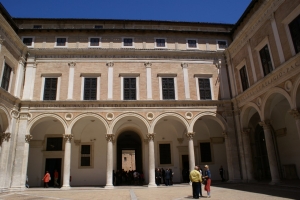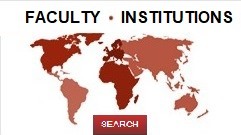Nature
Catholic Universities are different from ecclesiastical Faculties, since they teach and research subjects that are common to all Universities, in the light of Christian faith. They take care of cultivating sciences and training true professionals: people of knowledge and culture whom, supported by their faith and aware of the commitment that stems from it, are able to testify to their faith in front of the world and, with a spirit of service, work hard to contribute to humankind’s true progress, enhancing the human person in all its dimensions, without forgetting the spiritual and religious dimension, thus promoting peace, solidarity, and the good of the human family.
Legislation
These Universities and higher education Institutes award degrees with the agreement of the civil Authorities of the countries where they operate. Therefore, the recognition of degrees issued by Catholic Universities works in the same way as degrees issued by public Universities in the same countries.
Catholic Universities are regulated by the CIC (can. 807-814), the Apostolic Constitution Ex corde Ecclesiae (August 15, 1990), the implementation Norms of Catholic Bishops’ Conferences, and each Institution’s internal Statutes. At the same time, they abide by respective countries’ legislation and academic structure.
The Dicastery and Catholic Universities
The Dicastery’s responsibilities regarding Catholic Universities are a lot less cumbersome, compared to what applies to ecclesiastical academic Institutions:
• Catholic Universities can be erected and approved, in addition to the Dicastery, also by a Catholic Bishops’ Conference; by another Catholic Hierarchy Assembly; by a diocesan Bishop; by a Religious Institute or another public legal person, with the approval of a Bishop; as well as by other ecclesiastical or lay persons, under Ex corde Ecclesiae, Art. 3 (for Eastern Churches cf. CCEO, can. 642);
• however, statutes must be approved by the respective authorities;
Anyhow, the Apostolic Constitution Ex corde Ecclesiae confirms the right of the Holy See, through the Dicastery, to take action in every Catholic University, or vis-á-vis lower ranking ecclesiastical authorities in charge, whenever necessary. The Constitution also provides for Catholic Universities’ obligation to “maintain the communion with the universal Church and the Holy See,” in addition to local Churches.
The Dicastery is particularly active in urging Catholic Bishops’ Conferences (or, in the Eastern Churches, other “Assemblies of Catholic Hierarchy”) to draw up local implementation “Ordinationes” for Catholic universities, wherever they are found. “Ordinationes” must be reviewed by the Dicastery before they can be promulgated






